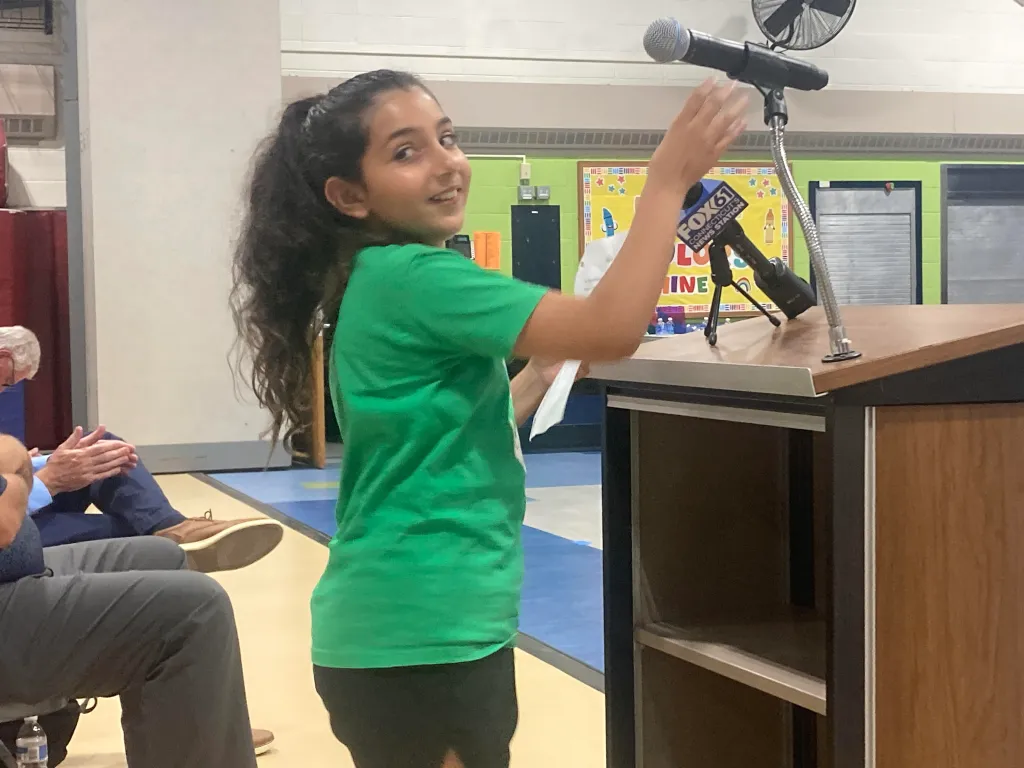
With about a dozen Connecticut districts declaring the Muslim festival of Eid an official holiday, some Farmington students and parents are stepping up their campaign to have schools in town closed on that day as well.
More than two dozen students and parents this summer have appeared before the board of education to ask it to designate a school holiday for Eid, with some citing reasons such as DEI, cultural acceptance or equity with other religions.
Increasingly, though, advocates are asking the school system to change its calendar for academic reasons.
“Unlike other students of different beliefs and practices, Muslim students are faced with a difficult choice every year: to miss school and miss assignments and tests and get behind on their work, or go to school and miss an important religious holiday,” a Farmington High School freshman told the school board Monday night.
“Farmington’s community is diversifying and the amount of Muslim students is increasing. If students have to miss school because of Eid, a lot of students are going to fall behind their classmates,” she said. “Since kindergarten we have been taught to make sure to include and respect anyone from different backgrounds and beliefs. Recognizing Eid as an official school holiday would be a meaningful step toward equity and inclusion.”
Earlier this year, the Amity regional school district covering Orange, Bethany and Woodbridge concluded a three-month study by making Eid and Diwali, a prominent Hindu celebration, official school holidays.
Connecticut’s school systems all are obligated to provide 180 days of classroom education, but are largely free to choose individually which holidays to celebrate. Frequently those decisions are based on demographics of the town.
Farmington, for instance, has a growing Jewish population, and there was a massive community backlash in November 2022 when the school board announced schools no longer would be closed for Yom Kippur and Rosh Hashanah. Just a month later, the board backpedaled by restoring those holidays after coming under intense criticism.
Before Amity made its decision last winter, the Connecticut chapter of the Council on American-Islamic Relations listed a dozen communities where Eid-ul-Fitr is on the school calendar: Stamford, Norwalk, Bridgeport, Fairfield, Trumbull, West Haven, New Haven, Hamden, New Britain, Waterbury, South Windsor, and Manchester. Most have significant or growing Muslim communities.
When Milford recently made Eid a class holiday, CAIR called it important progress.
“This recognition of Eid as a holiday sends a powerful message of inclusion and respect to Muslim families in Milford and across Connecticut,” Chairman Farhan Memon said at the time. “The Milford Board of Education has taken a proactive step towards ensuring that Muslim students can fully participate in their religious observances with their families without fear of missing important school activities or exams.”
Eid-ul-Fitr is one of the top celebrations in the Islamic faith, and observations can include prayer, family gatherings, exchange of gifts, and reflection on gratitude and forgiveness.
In June, resident Luma Chalabi asked Farmington’s school board to help Muslim students by recognizing Eid as a holiday. Several Farmington students spoke in support of the idea, with some saying they had to choose between celebrating Eid with families or attending classes. Some said they risked missing major exams or more social events such as class picnics or field days.
Their hope is to convince the board by this winter to close schools on Eid beginning in 2027.
Many Connecticut school districts set their calendars every year, but Farmington does this only once every two years. It establishes a two-year calendar listing everything from holidays and vacations to professional development days for teachers. Currently the schools are in the final half of a two-year calendar, and Muslim students and parents are hoping to get Eid recognized when the board this winter prepares the 2026-27 and 2027-28 calendars.



